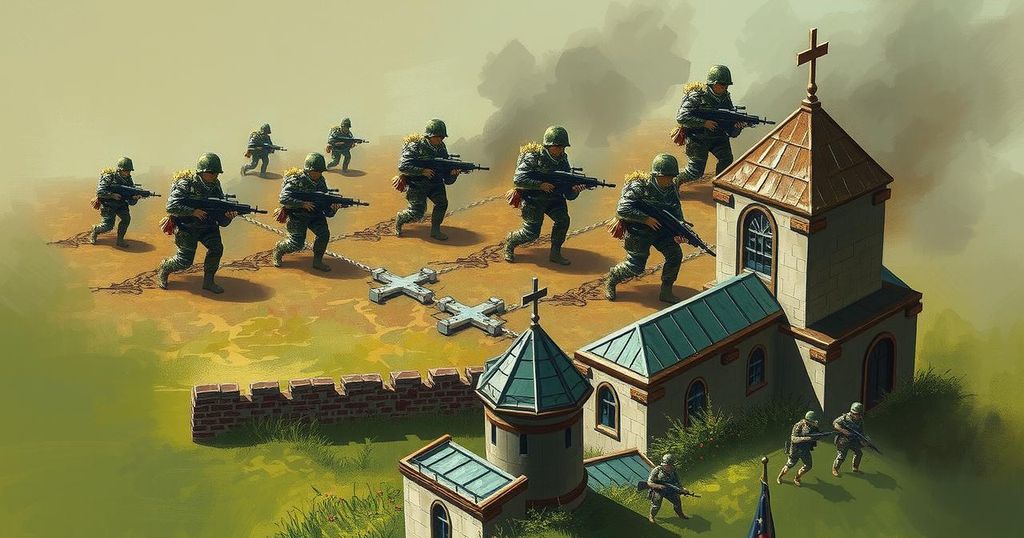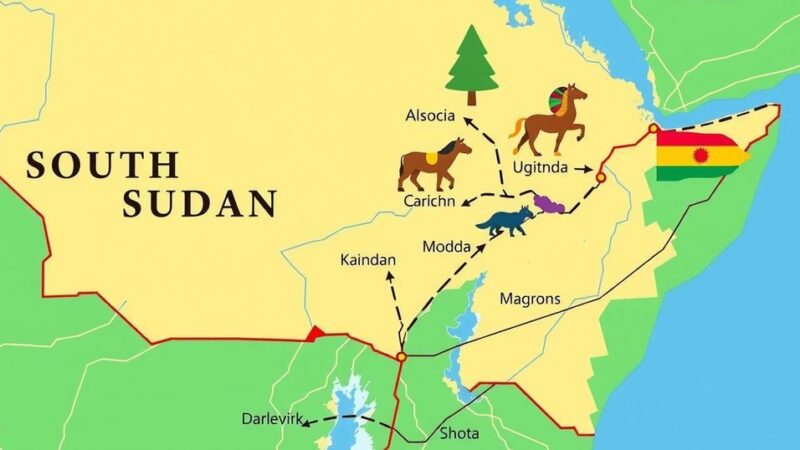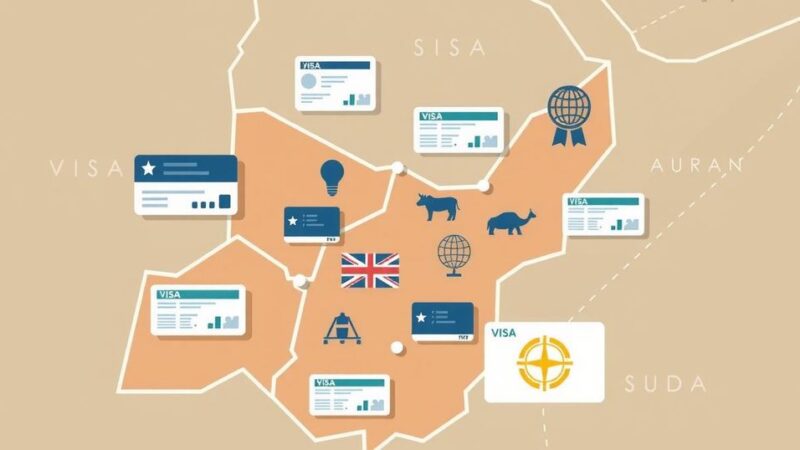The Sudanese army has made territorial gains in Khartoum, capturing the presidential palace in a significant move against the RSF. Despite this progress, the RSF retains control in other regions, indicating that the conflict continues. The humanitarian situation is dire, with widespread famine and disease affecting millions of Sudanese, particularly the Christian minority, who face targeted violence.
The Sudanese army has recently captured additional territory in Khartoum, including the presidential palace, marking a significant advancement in the ongoing conflict against the paramilitary Rapid Support Forces (RSF). Greg Kelley from Unknown Nations remarked on the encouraging nature of these developments, stating, “The people seeing their army, the Sudanese armed forces, take back a very symbolic location is very encouraging.”
Despite this progress, the RSF continues to maintain control in areas such as western Darfur, indicating that the conflict is far from over. Analysts suggest the situation may evolve into a scenario reminiscent of the early 2000s, characterized by violent power struggles. Kelley emphasized the plight of the Sudanese populace, noting that “the real victim is the people because these are just two groups fighting for power, and the people are suffering.”
The violence also extends to the Christian minority in Sudan, which is under significant threat. Recent incidents have seen RSF mercenaries using the Khartoum Evangelical Church as barracks while looting its resources. The majority of Sudan’s population is Muslim, with Christians often targeted by Islamist groups, as Kelley conveyed, stating, “They will kill Christians, take over their properties; they’ll take their women, force their children into military service.”
As the civil war in Sudan approaches its three-year mark on April 15, prayers for peace and humanitarian assistance are needed. Kelley warned that over half of Sudan’s population, approximately 25 million people, rely on external aid to survive. He highlighted the dire humanitarian conditions, addressing widespread famine and cholera outbreaks, stating, “The International Rescue Committee analyzes which countries are most likely to experience new or worsening humanitarian conditions, and Sudan, out of 195 countries, is number one.”
Organizations such as Unknown Nations aim to deliver support and resources, including audio messages of hope through God’s Word, to those in Sudan facing these grave challenges.
The Sudanese army’s recent territorial gains in Khartoum signify a critical, albeit tentative, advancement in its ongoing conflict with the RSF. However, the enduring struggle reflects a power clash that perpetuates the suffering of the Sudanese people, particularly the vulnerable Christian minority. Humanitarian needs continue to escalate, demanding urgent assistance as Sudan grapples with dire crises such as famine and widespread disease.
Original Source: www.mnnonline.org






